7 Different Types of Water Heaters – Pros and Cons (with Pictures)
-
- Last updated:
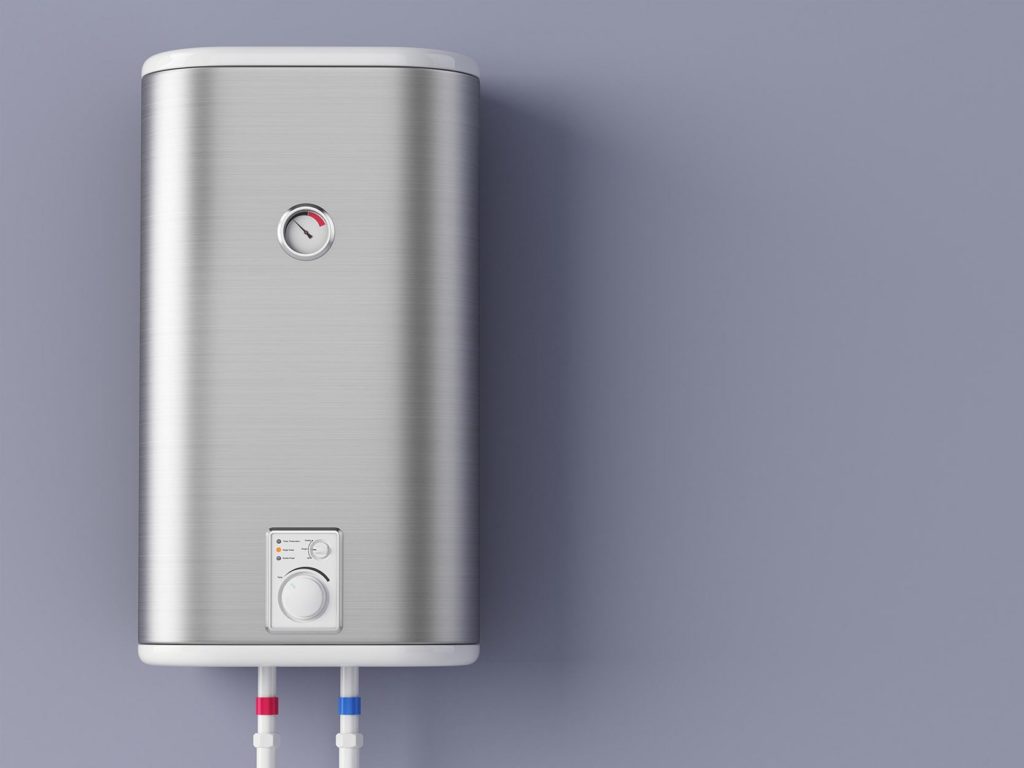
Your water heater is one of the most important systems that you can have installed in your home. It provides hot water on demand to all your taps and plumbing fixtures, and without one, you would need to manually heat water every time that you needed to bathe or wash anything.
Due to their “set and forget” nature, home water heaters are also one of those things that most people pay little attention to until something goes wrong. It is at the point when you find yourself standing in a cold shower or unable to wash the dishes that the true value of your water heater becomes apparent.
If maintained properly, a good hot water system will last 8 to 12 years on average, which means that when it comes to installing a new one, you should take the time to select a water heater that is right for your home. There are many different brands and types of water heater on the market, and it does pay to consider your options. Cheapest is not always best, and as tempting as it may be to just save a few bucks on whatever water heater your local hardware store has on sale, you may ultimately be getting a product that doesn’t suit your needs.
To help you out, we’ve put together this comprehensive list of the main types of water heater available, as well as the pros and cons of each.

The 7 Types of Hot Water Systems
1. Conventional Water Heaters
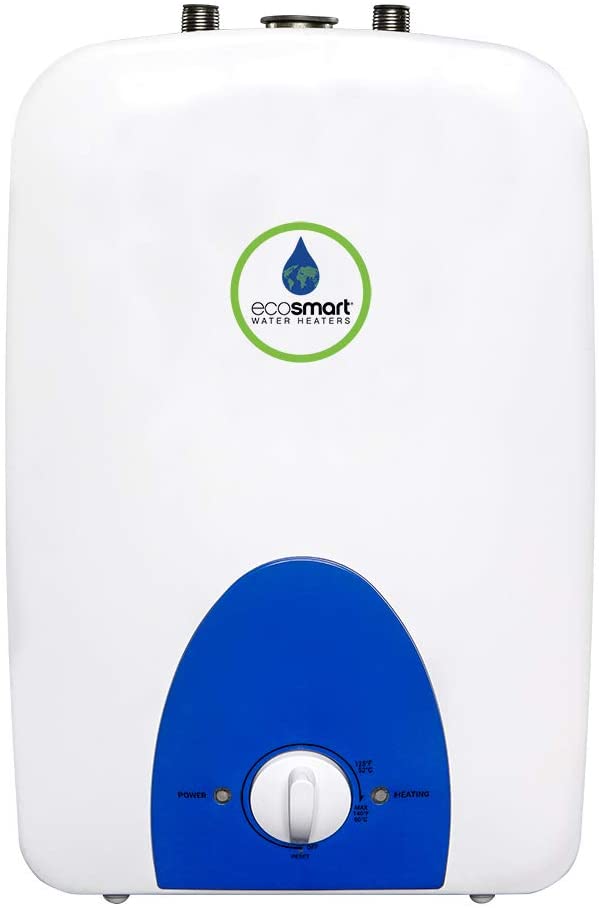
Conventional water heaters, also known as tank water heaters, are by far the most common type of hot water heater systems used in homes throughout the United States. These systems consist of a large insulated tank in which between 30 and 80 gallons of water (depending upon the size of the tank) are stored. These systems are typically powered by electricity or natural gas, but models that use liquid propane or oil are also available.
Regardless of how they are powered, conventional hot water systems work in essentially the same way. Coldwater is heated by the unit to a pre-set temperature and kept within the insulated tank until you are ready to use it. As you use the hot water or when it drops below a designated temperature if not used, the unit kicks in again and reheats the water. This process goes on continually, 24 hours a day, seven days a week, meaning that you are paying for your hot water all the time, whether you use it or not.
Despite being continuously in use, conventional hot water systems are typically the most cost-effective over the long term, and this accounts for much of their popularity. They are essentially maintenance-free, and while manufacturers usually recommend having them routinely checked to optimize their performance and drained every 6 months to prevent the build-up of sediments and minerals, many conventional units operate for a decade or more without any upkeep whatsoever.
On the downside, they are quite large units and take up a considerable amount of space. It is also important to ensure that you have the right sized tank to suit your household. These tanks can take up to an hour to reheat, meaning that a large family with a small tank would likely find themselves running out of hot water. Conversely, an individual living alone would probably never need all the water in a large tank and would be continually paying for hot water that they didn’t use.
- Cost-effective
- A ready supply of hot water
- Low maintenance
- Long-lasting system
- Large bulky units
- You pay for hot water 24/7
- Water availability is dependent on tank size
2. Tankless (On-Demand) Water Heaters
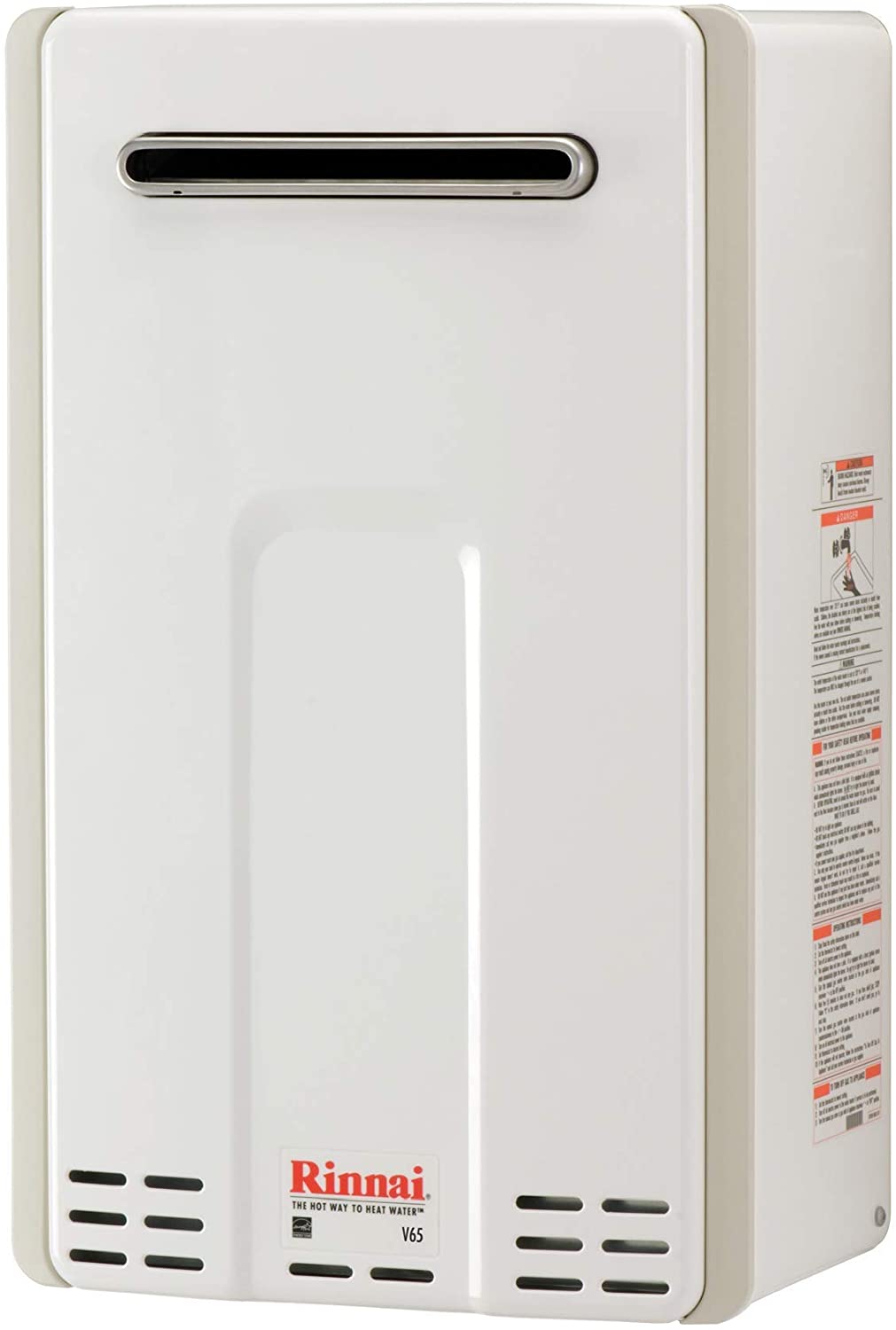
Tankless water heaters, also known as on-demand water heaters, are modern hot water systems capable of producing constant and unlimited amounts of hot water when required. The systems are growing in popularity throughout the United States due to their convenience.
Unlike conventional hot water systems, these on-demand units don’t have a tank in which hot water is stored, but rather they are designed to heat hot water whenever it is needed instantly. These systems work by running cold water through super-heated coils that can heat the water exceptionally quickly as you need it.
Tankless water heaters are typically more expensive than conventional hot water systems. But they are a great way of ensuring that even a large family can have an endless supply of hot water. Like tank systems, these systems are available in different capacities, and you should get a system designed for the number of people who live in your property; otherwise, you may find that during periods of high household demand, you will only have lukewarm or even cold water.
Tankless hot water systems are available in both natural gas and electric models, and natural gas systems are typically more efficient than electric systems. Regardless of your choice, if you need a large capacity tankless system, before installation, you may require a larger gas line or a higher capacity electrical system to be installed in your home, which may be quite expensive.
Once installed, tankless hot water systems are incredibly efficient because they only heat hot water when it is needed, not continually. Like conventional hot water systems, tankless models need little maintenance. However, most manufacturers will recommend having your system serviced annually to remove any mineral scale and avoid corrosion. If appropriately maintained, tankless hot water systems should last about 8-10 years before they require replacement.
- Endless instant hot water
- Small units that take up little room
- Low maintenance
- You only pay for the hot water you use
- Expensive to install
- Can be expensive to operate
3. Point-of-Use Water Heaters
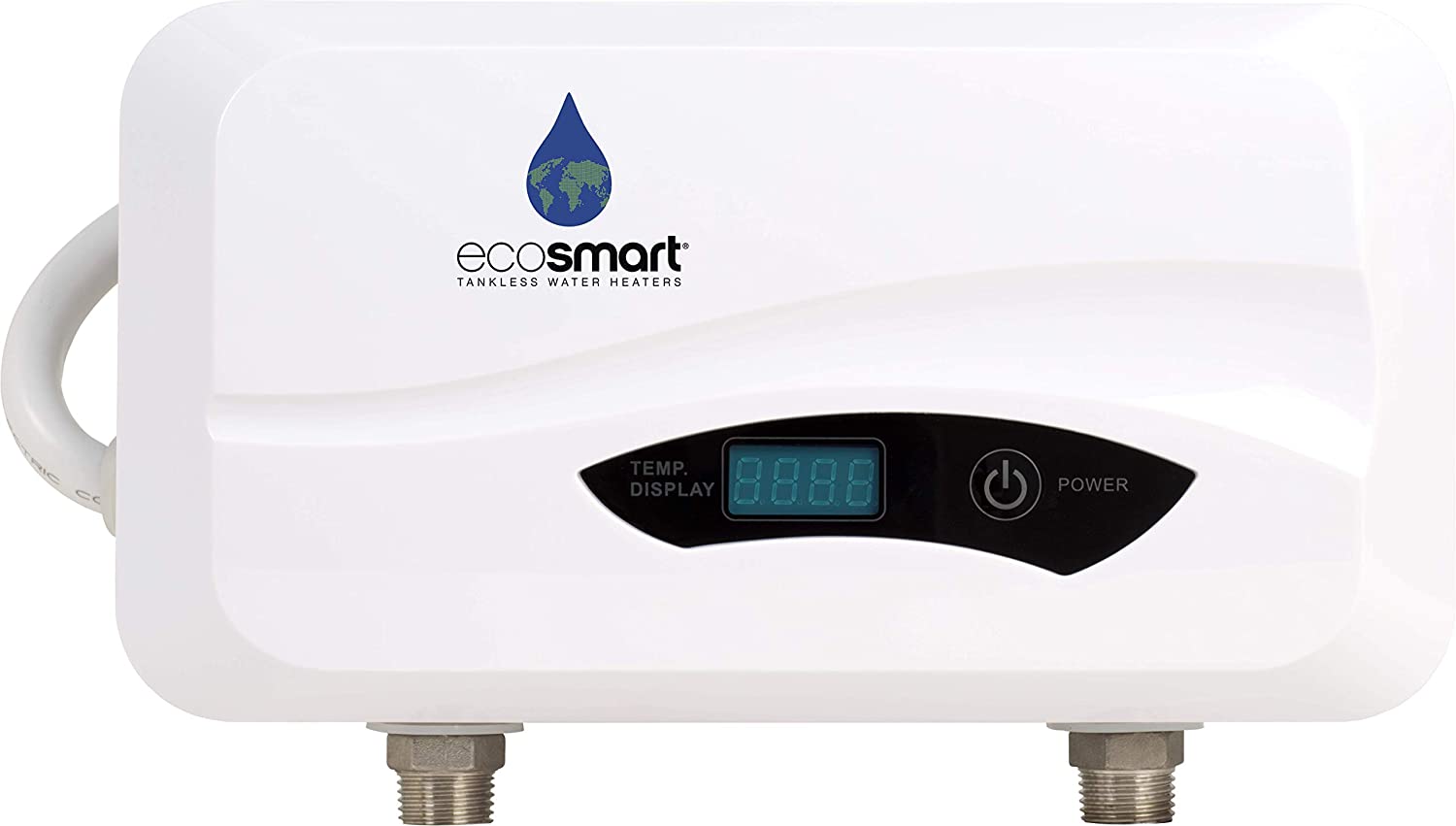
Point-of-use water heaters are small water heaters installed near the plumbing fixture that they will supply. They are available as both conventional and tankless systems, with the main difference being that their only purpose is to provide hot water to that one fixture.
Point-of-use hot water systems are often used to supply hot water to a hot tub or installed in guest garage apartments or extra bathrooms, where fewer than 20 gallons of water are needed each day.
- Inexpensive
- Easy way to provide hot water to one fixture
- Inefficient if used regularly
4. Solar-Powered Hot Water Systems
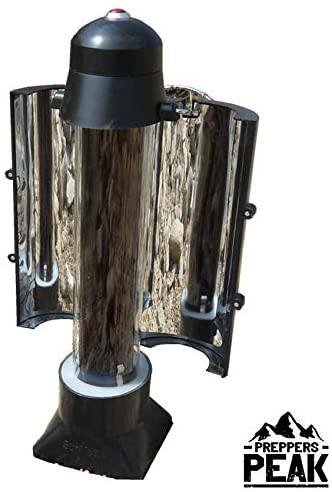
Solar-powered hot water systems use the energy from the sun to heat your hot water. As you might expect, these systems work best in areas with a warmer climate. They are of little value in areas where snow will cover the roof-mounted solar panels for several months of the year.
Like conventional hot water systems, solar-powered hot water systems have a large insulated tank in which hot water is stored until it is ready to be used, with the main difference being how the water is heated.
Solar-system water heaters are extremely energy efficient and rely on electricity produced by their solar panels to heat the water in the tank. Depending upon your system, the water tank itself may be mounted on your roof with the solar panels or elsewhere within your home. These systems usually come with either a gas or electric back-up, which will kick in to heat your hot water if your solar panels fail to collect enough energy to keep your water hot.
While more expensive to install than a conventional hot water system, if you live in an area that receives a large amount of sun, solar-powered hot water systems can end up saving you thousands of dollars in energy costs over the life of the system. However, compared to other hot water systems, solar hot water systems are expensive to purchase and install, so it may take quite a few years to save enough in power costs to break even.
Like conventional hot water systems, solar-powered hot water systems need little maintenance. However, you should consider emptying the tank every 6-12 months to prevent a build-up of sediment and minerals.
- Environmentally friendly
- Less expensive in the long run
- Energy efficient
- Expensive to purchase and install
- Best suited to areas with year-round sun
5. Heat Pump (Hybrid) Water Heaters
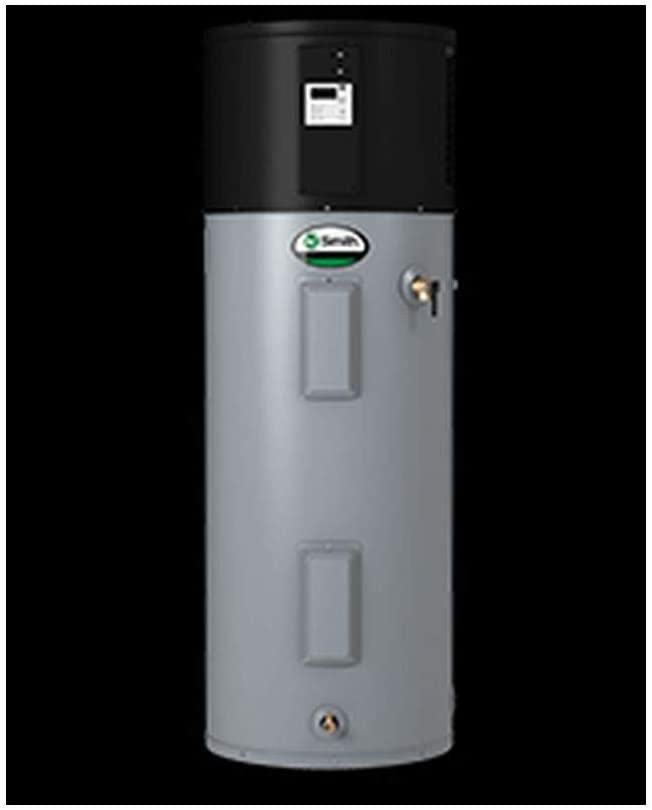
Heat pump, or hybrid, water heaters differ from conventional water heaters in that they use heat that is in the air or ground to heat your water rather than a direct power source. With these systems, heat is captured from the ground or air and pumped through the system to heat the water.
Heat pump water heaters are quite energy-efficient, using up to 60% less power than many conventional water heaters. Like conventional systems, they come with a large insulated storage tank in which the hot water is heated and stored for use. However, as they also have a large pump mounted to the top of the tank, they require more space than a conventional system. Also, unlike other water heaters, heat pump systems typically need about 8 feet of space around them to work efficiently.
Since these systems rely on obtaining heat from the ground or air to heat the water, they don’t work when installed in cold spaces such as basements and are not at all suited to areas with cold climates.
Heat pump water heaters are more expensive than conventional systems to purchase and install; however, they will more than make up for this expense within a few years due to their energy-efficient method of operation. As with all hot water systems, owners of heat pump systems should flush their tank every 6-12 months to avoid any build-up of sediments or minerals.
- Energy efficient
- Environmentally friendly
- Expensive to purchase
- Requires a warm climate
- Requires a large amount of space
6. Condensing Water Heaters
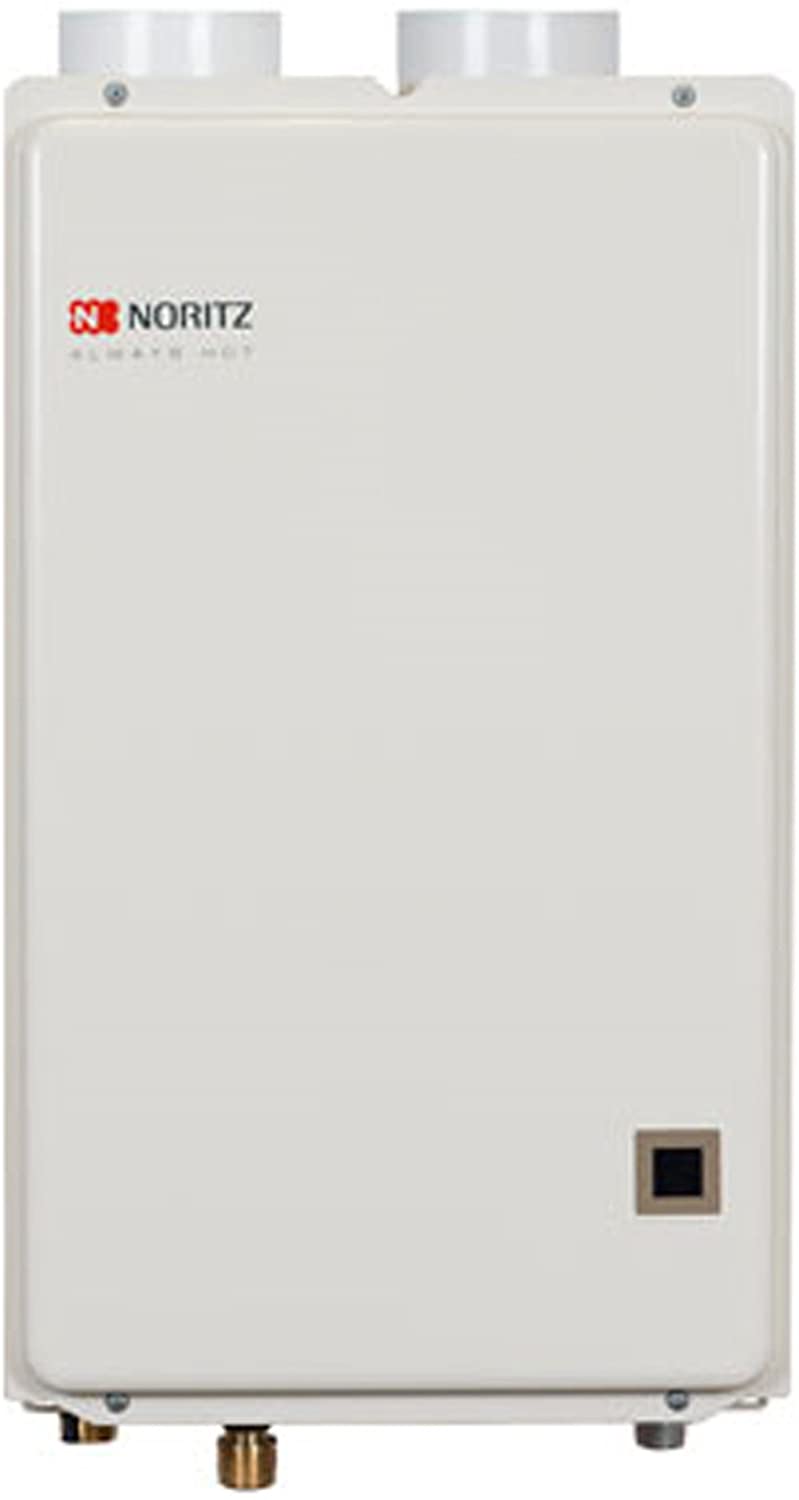
Condensing water heaters are designed to make use of a home’s unused waste gas fumes to heat hot water. These systems are best suited to homes that use natural gas as their primary source of energy for year-round heating and cooking, and in this regard, they are more commonly found in homes in areas with a cooler climate.
Condensing water heaters operate similarly to a traditional water heater, but rather than using natural gas or electricity to heat the water that is stored in the tank directly, they funnel heated exhaust from your home’s natural gas system through a coil at the bottom of the tank to heat the water. By making use of heated exhaust, these systems use extraordinarily little additional power, making them an extremely efficient method of heating water.
The annual maintenance of a condensing water heater is much the same as all the other available tank systems. The one drawback to condensing water heaters is that they are not available in small-sized units. To operate effectively, these systems need a large water tank, and this can add to the initial price of the unit if you would otherwise only require a small water heater.
- Energy efficient
- Environmentally friendly
- Low running costs
- Suitable only for a home that uses natural gas
- Only available in large units
- Best suited to homes with year-round heating
7. Combination Boiler
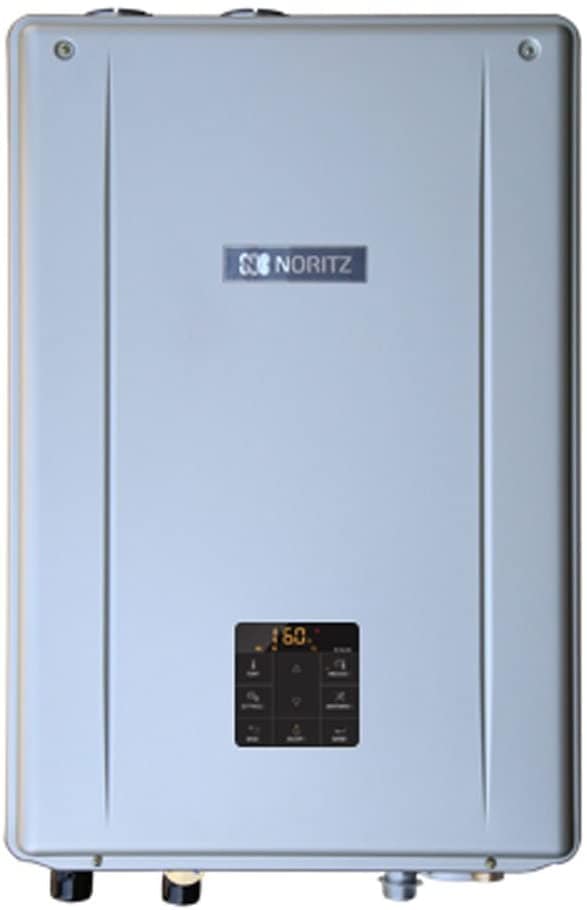
A combination boiler, also known as a combi boiler, is a water-heating system and central-heating boiler system in a single unit. Combi units are a highly effective and efficient method of heating water that cost little more to run than a conventional central-heating boiler system.
Combination boilers are another type of hot water system best suited to homes located in areas with climates that require year-round heating. They are more expensive than a conventional hot heater. Still, they are usually a cheaper option than installing both a separate water heater and boiler, and once installed, they use little additional energy to operate.
Combi boilers are usually quite small units and are suitable for homes that require low to moderate amounts of hot water but may not be ideal for households where frequent simultaneous hot water use (e.g., multiple simultaneous showers) is the norm. Due to their compact size, these systems are also exceedingly popular with owners of apartments or condominiums.
- Low running cost
- Small space-saving units
- Best suited to homes that require year-round heating
- Expensive to purchase
You might also like:
- How to Determine the Age of a Water Heater (Complete Guide)
- 9 Best Wall Mounted Electric Fireplaces — Reviews & Top Picks
Featured Image Credit: Sashkin, Shutterstock
Contents

